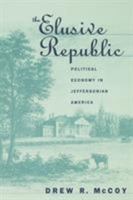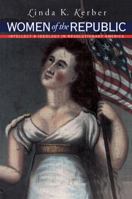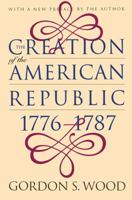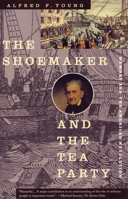War under Heaven: Pontiac, the Indian Nations, and the British Empire
Select Format
Select Condition 
You Might Also Enjoy
Book Overview
Honorable Mention from the Association of American Publishers Professional and Scholarly Publishing Awards for History
The 1763 Treaty of Paris ceded much of the continent east of the Mississippi to Great Britain, a claim which the Indian nations of the Great Lakes, who suddenly found themselves under British rule, considered outrageous. Unlike the French, with whom Great Lakes Indians had formed an alliance of convenience, the British entered the upper Great Lakes in a spirit of conquest. British officers on the frontier keenly felt the need to assert their assumed superiority over both Native Americans and European settlers. At the same time, Indian leaders expected appropriate tokens of British regard, gifts the British refused to give. It is this issue of respect that, according to Gregory Dowd, lies at the root of the war the Ottawa chief Pontiac and his alliance of Great Lakes Indians waged on the British Empire between 1763 and 1767.
In War under Heaven, Dowd boldly reinterprets the causes and consequences of Pontiac's War. Where previous Anglocentric histories have ascribed this dramatic uprising to disputes over trade and land, this groundbreaking work traces the conflict back to status: both the low regard in which the British held the Indians and the concern among Native American leaders about their people's standing--and their sovereignty--in the eyes of the British. Pontiac's War also embodied a clash of world views, and Dowd examines the central role that Indian cultural practices and beliefs played in the conflict, explores the political and military culture of the British Empire which informed the attitudes its servants had toward Indians, provides deft and insightful portraits of Pontiac and his British adversaries, and offers a detailed analysis of the military and diplomatic strategies of both sides. Imaginatively conceived and compellingly told, War under Heaven redefines our understanding of Anglo-Indian relations in the colonial period.
Customer Reviews
Rated 4 starsVery well written with one minor complaint
The book was well written and I found Dowd's argument convincing. His narration is clear, though there are times when it could have been shortened. The complaint... Dowd does a decent job explaining the British Navy as an advantage at Fort Detroit. It is possible, and probable that many of the people on the ships were not trained sailors that the royal navy is accustomed to. However, the British certainly knew how to handle...
0Report
Rated 5 starsFairer evaluation of Bradstreet
Uncolored by prevailing thought, Dowd's impression of Col. Bradstreet is more objective than most. For instance, most historians have unfortunately taken Sir Wm. Johnson's "Remarks on the Conduct of Col. John Bradsteet" letter to Gen. Gage as sound criticism, which it is not. The enraged Johnson permitted his personal dislike and his resentment for Bradstreet (his usurping of his powers to make treaties)to overwhelm him...
0Report
Rated 5 starsshort and sweet
this fast read is good for understanding the "benign neglect" policy of the British government during the pre-AmerRev period.Traditional interpretatins of the Proclamation of 1763(which restricted white european settlement west of the Appalachians) blame poor land hungry European settlers for the violation of the treaty and make the British government appear as mediators. Dowd asks the "big question",that is,with all that...
0Report
Rated 5 starsScholarly and Accessible
I am going to offer a rave review, (admittedly of a favorite period), and want to disclaim the need for a disclaimer --- I do not know the author or have any connection to his University or publisher. Gregory Dowd can hardly be accused of writing inaccessible history only to other historians on an obscure topic. The linkages in British Colonial Indian policy between the end of the French and Indian War and the Revolution...
0Report










































